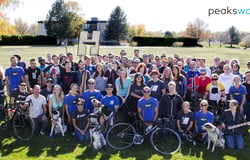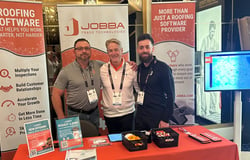Miovision’s mission is to provide the foundation for tomorrow’s smart cities by transforming the way traffic networks are managed today. Backed by the world’s most advanced traffic AI, Miovision’s innovations in traffic signal planning and operations have made it possible for cities to improve the transportation experience for drivers, cyclists and pedestrians since 2005. With offices in Kitchener, Canada and Cologne, Germany, Miovision serves over 17,000 municipalities worldwide. For more information, visit www.miovision.com
Miovision is seeking a Senior Computer Vision Scientist who is passionate about advancing the field of computer vision through innovative approaches to simulated environments, 3D scene understanding, and robust model development. You will bridge cutting-edge research and practical applications, translating advanced computer vision concepts into production-ready solutions. Your expertise in simulation technologies and real-world data integration will help shape our technical strategy and product development, helping cities create safer streets and reduce traffic congestion through AI-powered solutions that work reliably in real-world conditions.
Key Accountabilities
- Lead the development of advanced simulation environments using platforms like CARLA and Unreal Engine, ensuring high-fidelity representation of real-world scenarios.
- Design and implement automated pipelines for generating high-quality ground truth segmentation maps from simulated environments, ensuring precise pixel-level annotations for training and validation.
- Guide technical decisions around data annotation strategies and quality control processes.
- Design and implement comprehensive data quality frameworks that span both simulated and real-world datasets, including automated validation systems and data integrity checks.
- Develop and optimize 3D scene understanding capabilities and multi-view geometry, including depth estimation, object localization, spatial relationship modelling, and automated generation of precise segmentation ground truth from synthetic data.
- Create robust validation methodologies to ensure simulation-trained models perform reliably in real-world conditions.
- Bridge the gap between simulated and real-world data through advanced domain adaptation techniques and careful calibration processes.
- Research and implement novel approaches for translating academic breakthroughs into production-ready computer vision solutions.
- Design and maintain data augmentation and synthetic data generation pipelines that realistically capture edge cases, environmental variations, and produce accurate ground truth segmentation maps.
- Establish quality metrics and validation procedures for assessing model performance across simulated and real-world environments.
- Lead initiatives to transform research concepts into scalable, production-ready solutions.
- Participate in technical roadmap discussions and estimation exercises.
Skills and Qualifications
- 7+ years of experience developing computer vision and machine learning, PhD preferred.
- Deep expertise in 3D computer vision, scene understanding, and geometric deep learning.
- Experience with photorealistic rendering, physics-based simulation, automatic ground truth generation for instance and semantic segmentation, as well as camera homography, optimization, and image processing.
- Strong software skills, particularly with Python and C++ on Linux
- Extensive experience with simulation environments (CARLA, AirSim, Unity, Unreal Engine), their integration with real-world data pipelines, and automated generation of precise ground truth segmentation maps.
- Strong background in bridging simulated and real-world domains through advanced adaptation techniques.
- Experience in developing and maintaining robust data quality assessment frameworks and expertise in designing and implementing validation methodologies for computer vision systems.
- Proven track record of translating research papers into practical, production-ready solutions.
Additional Assets
- Experience with modern data annotation platforms (e.g., V7, Scale AI, Labelbox), designing efficient labeling workflows, and implementing automated ground truth generation pipelines, including creating annotation guidelines, quality assurance processes, and managing annotation team workflows.
- Experience with the machine learning operations (MLOps) workflow and in developing robust evaluation metrics for computer vision systems.
- Track record of publishing in top-tier computer vision conferences (CVPR, ICCV, ECCV) and a desire to contribute to writing technical reports and/or research papers.
- Experience with edge-computing such as Jetson Xavier, TX2, or FPGA, and video pipeline performance optimization.
- Familiarity with running and training inference engines using at least one of TensorFlow, OpenCV, PyTorch, TensorRT, ONNX.
Top Skills
What We Do
Miovision provides cities with modern tools to fix today's traffic problems. We offer solutions that collect multimodal traffic data and uncover actionable insights, helping municipalities get more out of their road network. The result: streets capable of moving more people – safely and efficiently – whether they are in a car, on a bus, on a bike or e-scooter, or walking. Since 2005, our systems have counted more than nine billion vehicles around the world. We have offices in Kitchener, Canada as well as operations in Germany, Serbia and the US. For more information, visit miovision.com









